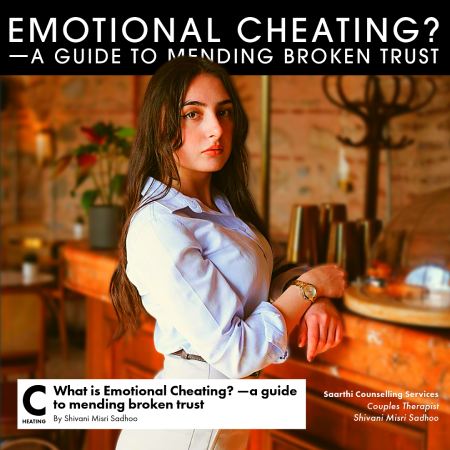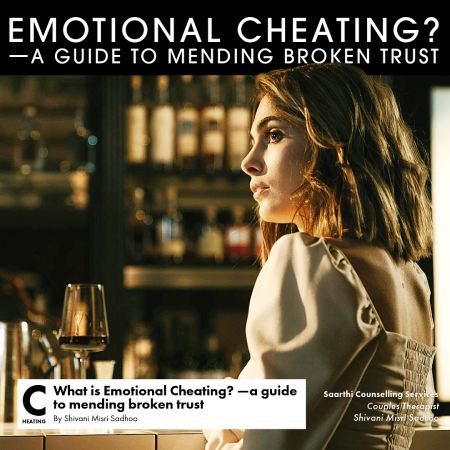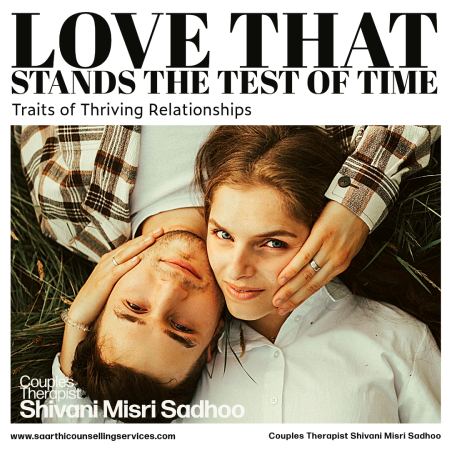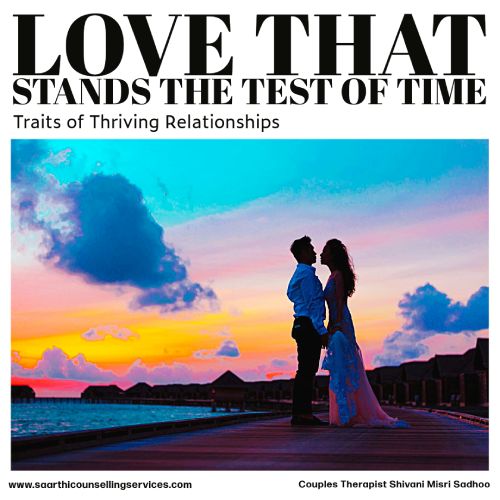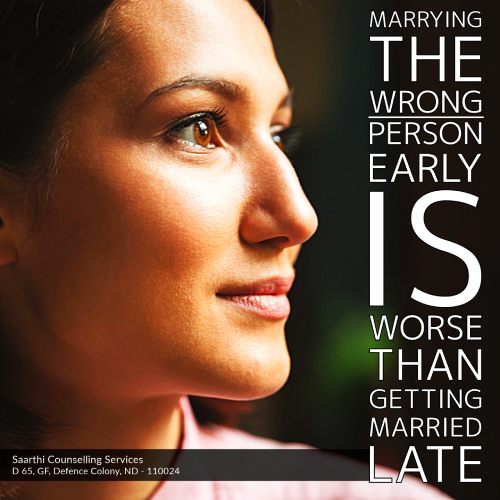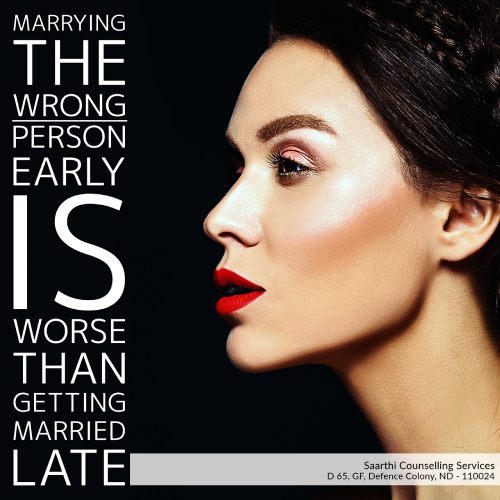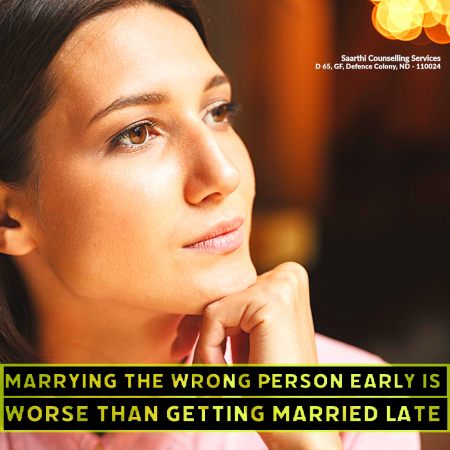Love is a wonderful feeling. When we love someone deeply, we open ourselves up to vulnerability, trusting them with our hearts and our deepest emotions. However, with this vulnerability comes the risk of betrayal, and one of the most painful forms of betrayal is emotional cheating. So, what is Emotional Cheating and how can we mend this broken trust? Delhi’s leading marriage and family therapist, Shivani Misri Sadhoo answers your question in this article.
What is Emotional Cheating?
Definition–Emotional cheating refers to forming intimate emotional bonds outside a primary relationship, breaking trust and boundaries. It doesn’t involve physical intimacy. Instead, it occurs when we develop strong feelings for someone outside of our committed relationship. Signs include secrecy, confiding in another, flirtation, and neglecting the partner’s needs.
Emotional Cheating is not the same as Platonic friendship. In a platonic relationship, the emotional connection is significant, but it lacks the romantic or sexual attraction that typically defines a romantic relationship.
How does it happen? Innocent friendships can escalate into emotional affairs, often involving co-workers, exes, online friends, or seeking solace during relationship issues.
What is the impact of emotional cheating on the primary relationship?
Impact on primary relationship: It damages trust, weakens emotional closeness, suggests less commitment, and may lead to physical cheating, similar to infidelity.
What are the Signs of Emotional Cheating?
- You confide in someone else about your relationship issues instead of discussing them with your partner, breaching trust and intimacy.
- You feel excited while interacting with this person. This indicates a potential emotional connection beyond friendship.
- You deliberately conceal or minimize the depth of your bond with this individual from your partner, betraying transparency and honesty.
- There’s flirtatious behaviour with an underlying romantic or physical attraction, crossing the boundaries of platonic friendship.
- This person fulfils your emotional needs in ways your partner doesn’t, leading to dissatisfaction and comparison, wishing your partner were more like them.
What are the ways to mend this broken trust in relationships and marriages?
Mending broken trust after emotional cheating requires a concerted effort from both partners. It’s not easy, and it takes time, patience, and a willingness to confront difficult emotions head-on. Here are a few ways by which this is possible:
Accept your mistake – One of the crucial steps in rebuilding trust after emotional cheating is admitting and owning up to your actions. Accepting responsibility without excuses or blame shows genuine remorse. Validating your partner’s feelings and creating a safe space for them to express emotions freely nurtures healing and rebuilding trust.
Completely disconnect – When your partner decides to end the relationship due to emotional cheating, it signals seriousness. They must cut off all contact with the third party, allowing verification. This means blocking, avoiding encounters, and setting clear work boundaries if the affair was with a colleague.
Honest communication – Communication is the cornerstone of relationships. Honest, open dialogue is crucial for addressing emotional cheating. It creates a safe space for expressing feelings, rebuilding trust, and sharing perspectives. Through dialogue, partners understand each other better and can work towards healing the relationship.
Try to regain trust – Share your hopes, dreams, and emotions openly with your partner. Plan special dates to reconnect without distractions. Listen actively and empathize with each other. Rebuild trust after emotional cheating through open communication and intentional gestures of love.
Forgive and forget – It may be difficult to forgive and forget, yet it’s vital in overcoming emotional infidelity. It’s not just about pardoning your partner; it’s about releasing self-blame. Forgiveness liberates, empowering you to move forward and enabling relationship recovery.
Now that you understand emotional cheating and how to mend broken trust, remember: that honesty, communication, and forgiveness are key to rebuilding a stronger, more resilient relationship.
